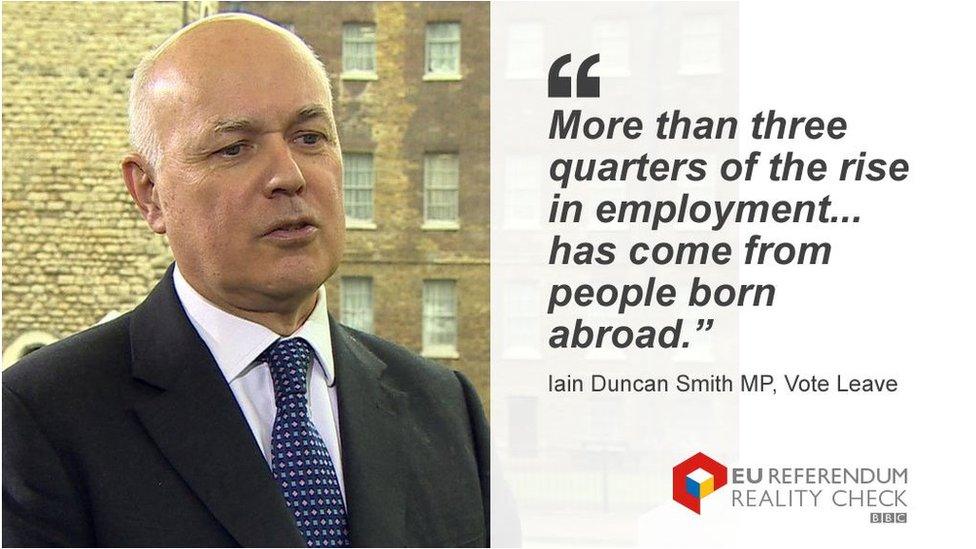Reality Check: How much of the rise in jobs is due to foreigners?
- Published

The claim: Iain Duncan Smith says that more than three quarters of the rise in employment in the last year has come from people born abroad.
Reality Check verdict: The latest figures support this. You could also look at the number of non-UK nationals (rather than everyone born abroad, which includes British citizens). They account for 56% of the rise.
Responding to the latest unemployment figures, Leave campaigner Iain Duncan Smith said: "Our labour market is thriving, but it's notable that more than three quarters of the rise in employment over the last year has come from people born abroad."
The figures suggest, external that people born abroad account for 80% of the rise in employment - as Mr Duncan Smith says, more than three quarters.
But the figure for the number of people born abroad includes UK nationals who were born in other countries.
The Office for National Statistics (ONS) also produces figures for non-UK nationals working in the UK, which suggests 56% of the increase in employment may be attributed to non-UK nationals.

In the context of the referendum the broader point the Leave Campaign has been making is that there's been a big increase in the proportion of people working in the UK who are EU nationals.
The proportion of UK workers who are non-UK EU nationals has indeed increased considerably.
In the first three months of this year, about 6.8% of UK workers were non-UK EU nationals. Five years ago that figure was 4.5% and 10 years ago it was 2.6%.
If you look at the numbers behind that, at the moment there are 2.15 million EU nationals working in the UK. Five years ago it was 1.33 million and 10 years ago it was 758,000.



- Published22 February 2016
